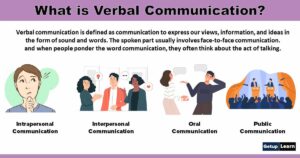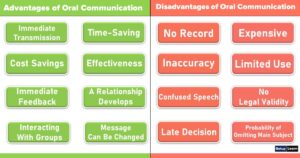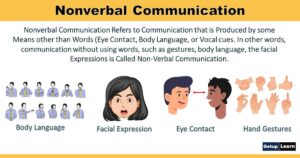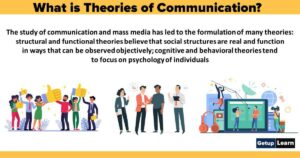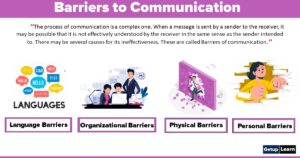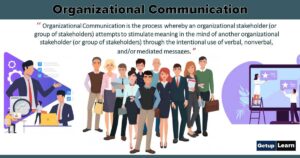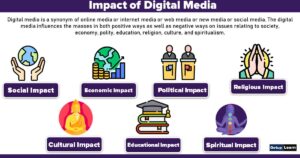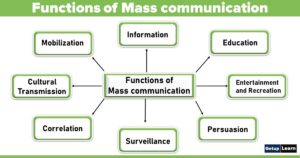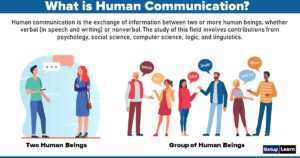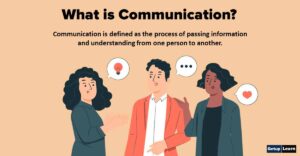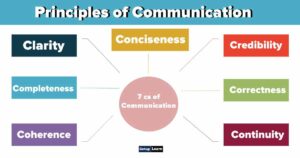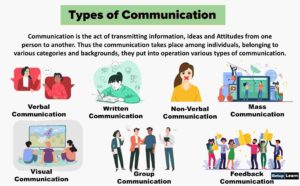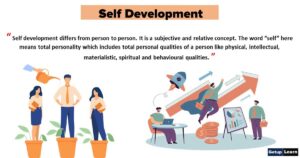Table of Contents
What is Effective Communication?
Effective communication is a combination of a set of skills that include attentive listening, nonverbal communication, the ability to deal with stress in the present situation, and the capability to identify and understand one‟s own emotions and those of the person one is communicating with. Communication skill depends on the capability of an individual to communicate ideas and thoughts to others to develop the desired response.
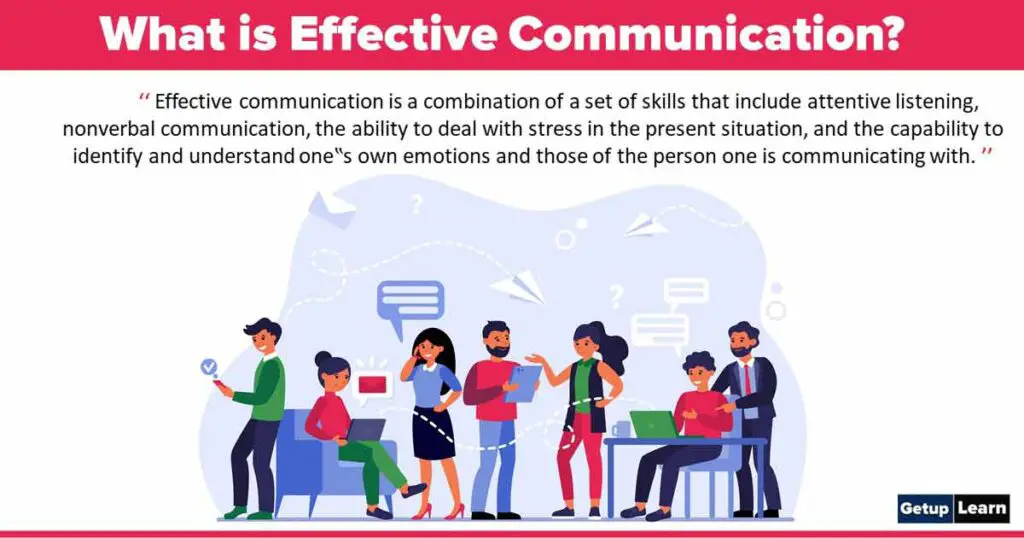
Table of Contents
To make communication effective it must be interpreted and understood in the same manner as it was meant to be sent by the sender. If it is not so, it will not achieve the desired results and communication breakdown will occur.
Communication effectiveness is always influenced by our very natural tendency to judge, evaluate, approve or disapprove of the statement of the other person or another group. This tendency may give a different shape to the entire communication.
Therefore, the management should understand to eliminate all external roadblocks, so that communication is unambiguous and side by side try to know the perceptions and attitudes of the receiver, so as to ensure the desired impact of communication.
Characteristics Of Effective Communication
The characteristics of effective communication are:
- Clarity of Purpose
- Completeness
- Conciseness
- Feedback
- Empathy
- Modify the Message According to the Audience
- Multiple Channels of Communication
- Make Effective Use of Grapevine (Informal Channel of Communication)
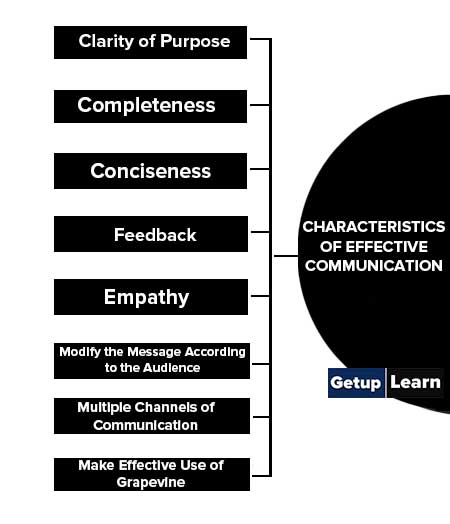
Clarity of Purpose
The message to be delivered must be clear in the mind of the sender. The person to whom it is targeted and the aim of the message should be clear.
Completeness
The message delivered should be complete. It should be supported by facts and observations. It should be well planned and organized. No assumptions should be made by the receiver.
Conciseness
The message should be concise. It should not include any unnecessary details. It should be short and complete.
Feedback
Whether the message sent by the sender is understood in the same terms by the receiver or not can be judged by the feedback received. The feedback should be timely and personal. It should be specific rather than general.
Empathy
Empathy with the listeners is essential for effective verbal communication. The speaker should step into the shoes of the listener and be sensitive to their needs and emotions. This way he can understand things from their perspective and make communication more effective.
Modify the Message According to the Audience
The information requirement by different people in the organization differs according to their needs. What is relevant to middle-level management might not be relevant to top-level management. The use of jargon should be minimized because it might lead to misunderstanding and misinterpretations. The message should be modified according to the needs and requirements of the targeted audience.
Multiple Channels of Communication
For effective communication, multiple channels should be used as it increases the chances of clarity of the message. The message is reinforced by using different channels and there are fewer chances of deformation of the message.
Make Effective Use of Grapevine (Informal Channel of Communication)
The employees and managers should not always discourage grapevine. They should make effective use of the grapevine. The managers can use the grapevine to deliver formal messages and for the identification of issues that are significant for the employees. The managers can get to know the problems faced by the employees and can work upon them.
Importance of Effective Communication
The following points show the importance of effective communication which are given below:
- Basis of Action
- Facilitates Planning
- Helps in Decision-Making
- Means of Coordination
- Improves Relationships
- Improve Motivation and Morale
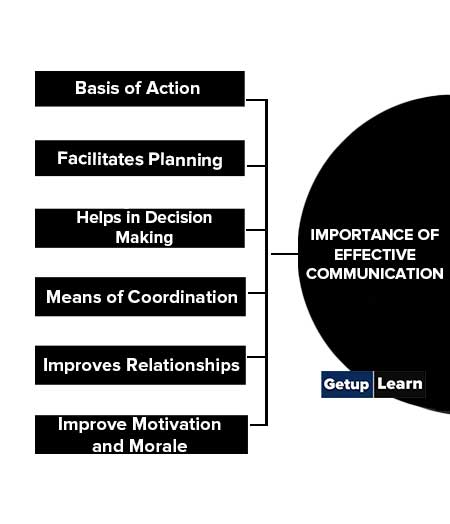
Basis of Action
Effective communication is important because unless employees know the company objectives, they cannot associate them with their own. The transmission of information from one person to another is necessary for an organization’s well-being. Getting the right information to and from the correct sources is necessary for an organization to function properly. Communication keeps the people working in accordance with the desires of managers
Facilitates Planning
If communication is effective it helps the planning process in a number of ways:
- it helps executives to interact and provide vital inputs to plans,
- it helps executives to strike rapport with subordinates, seek their opinions and provide realistic information, on which sound plans could be prepared,
- it helps executives to communicate what is contained in the plans in a clear way and secure their acceptance.
Helps in Decision-Making
The quality of decisions made in an organization depends largely on the amount and quality of information available to the decision-maker. Communication provides the right type of information to a manager and enables him to consider the pros and cons thoroughly before arriving at a decision. It helps him to move closer to subordinates, identify their problems and solve them amicably.
Means of Coordination
Effective communication is the basis of all group activities. In an organization, the work is done at various levels and processed by different departments and individuals. For best results, communication between these internal units is essential. It permits upward, downward and horizontal interaction between members at all levels of authority.
In the absence of effective communication, members may fail to realise the importance of working united towards and common goal. It is only through effective communication that people can attain a common viewpoint and understanding and cooperate to achieve organizational objectives. In the words of Hicks, “when communication stops, organized action comes to an end”.
Improves Relationships
Good communication builds better relationships among employees working in an organisation. It binds individuals to a common purpose. Exchange of facts, opinions, feelings and sentiments and interchange of information concerning work would enable employees to understand each other.
Communication thus improves understanding between people. It cements the superior-subordinate relationships. In short, it serves as the ‘lubricant fostering the smooth operation of the management process’.
Improve Motivation and Morale
Effective communication improves morale and motivation by keeping people informed. Good communication induces people to give their best to the organization. Employees can communicate their grievances, troubles, problems to the management. Managers, in turn, can explain the importance of organizational rules, policies and procedures properly.
Without facts, understanding and acceptance, efforts to promote productivity are doomed According to Glueck, “effective managers rely on words—words clearly and persuasively communicated— to motivate subordinates, peers, and superiors to do as they wish”
Essentials for Effective Communication
Followings are the essentials for effective communication which are given below:
- To Know the Process of Communication
- Know Your Target Audience
- Better Informed
- Plan Adequately
- Remain Positive
- Overcome Strong Feelings
- Remain Sincere
- Be Consistent
- Focus on Timeliness
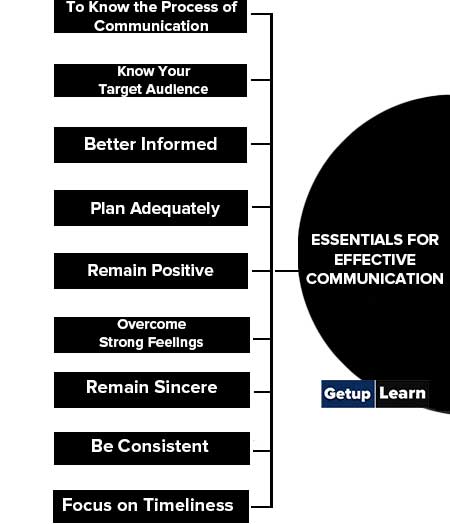
To Know the Process of Communication
This essential for effective communication describes the need to understand how the process of communication works, i.e., the principles and tools of communication. To appreciate the various steps involved in communication in terms of encoding, decoding, transmission, comprehension, feedback, etc., it is necessary to have a good understanding of the mode, channels, types, instruments, methods and barriers relating to communication and the factors affecting it.
Know Your Target Audience
Messages cannot bring about the desired results unless they reach the right person or group of persons. The message should address the target people. For the communication to be effective, it should properly be focused. Be it a letter, a speech, a film or a presentation, make sure the receiver is connected with or is relevant to the purpose of communication.
Quite often, communication loses its effectiveness because it reaches an unintended audience. Good ideas and messages reaching the wrong persons will end up as an exercise in futility. The next essential step is to develop good communication skills. Effective communication presupposes the ability to communicate under varied circumstances.
The skills of communication that need mastering are reading, writing, listening, speaking, body language, presentation, etc. One must be clear about the merits and demerits of communication, and which of them is to be used under a given set of circumstances. Each of them is a different skill and requires a deliberate effort to master it.
Better Informed
Often communication relates to providing information. The initiator of the communication process should, therefore, be well informed about the message he wants to pass on. The initiator should also have the right perspective about the message and be in a position to appreciate the context in which the message is being communicated.
Limited information or limited understanding by the sender naturally limits the sender’s ability to communicate. This happens in an organizational context when the sender of the message is doing so based on incomplete information. People receiving the message often have their expectations about it and the person giving the message should take cognizance of the fact that their expectations are met.
Plan Adequately
In order to be effective, any communication is to be well planned. The messages to be conveyed, the words to be chosen, the action to be sought, the feedback to be obtained, are all the areas that need to be carefully considered. These aspects will have to be evolved properly before deciding on the right choices.
While some routine messages can be communicated without advance planning, all important communication in organizations or businesses needs organized effort. Inadequate planning can, and often does, result in ineffective communication. Good planning should take note of the target audience and pay attention to their attitudes and expectations, as well as timings.
Remain Positive
Yet another requirement for effective communication is a positive approach and the right mental attitude. The communicator should have faith in the process. One should develop confidence through learning and practice. One should take responsibility for making the communication work. The communicator should learn to overcome barriers and look for positive signals. One should not bring in a bias of his own. Moreover, it is required to recognize the power of communication and strive to achieve results through the process.
Overcome Strong Feelings
Extreme and strong feelings are not conducive to effective communication. Anger, depression and frustration adversely impact the thought process and thereby distort what is intended to be conveyed or what needs to be conveyed. A disturbed mind brings out disturbing thoughts, and thus distorts communication.
While addressing important communications, and reacting to provocative remarks, it is essential to wait till the mind regains its balance and the severity of feelings subsides. It is absolutely essential to realize that, quite often, the process of communication is irreversible.
A word spoken or a letter written in a fit of anger can do considerable damage. This is particularly true in work situations, marketplaces, organizations and businesses, Restraint always pays and one should try to practice it.
Remain Sincere
Effective communication demands a certain degree of honesty and sincerity on the part of the parties involved in the communication. It is necessary that the messages are given sincerely and truthfully. There should not be a deliberate attempt to mislead or manipulate the recipient of the message. If the receiver of the message losses faith in the communicator, the process of communication suffers in terms of credibility. Effective communication, therefore, presupposes sincerity.
Be Consistent
Communication is mostly a regular process, rather than a one-time affair. In personal dealings, in organizational settings and in business places, communication takes place almost all the time. The parties involved in the communication, quite often, are the same.
When communication takes place on a regular basis, it is necessary to be consistent. It is necessary not to contradict one. There may be scope for modification or correction, but not for contradiction. Further, when different methods of communication are used in conveying a particular message, contradictions have to be consciously avoided. The spoken message should be in tandem with the body language. Non-verbal communication should supplement oral messages.
Focus on Timeliness
Speed and timeliness contribute significantly to the effectiveness of communication. In the present context, the value of time is well recognized. Organizations and businesses set goals, which have to be achieved within a given time frame. Tasks have to be completed before the allotted deadlines.
All communications concerning such goals and tasks will have to appreciate the time factor. Quite often the messages which are delayed are wasted. Therein lays the significance of the choice of the channel of communication.
Miscommunication
There are many reasons for miscommunication. For the purpose of analysis, they can be placed into four categories:
- Problems Caused by the Sender
- Problems in Message Transmission
- Problems in Reception or Noise
- Problems in Receiver or Understanding
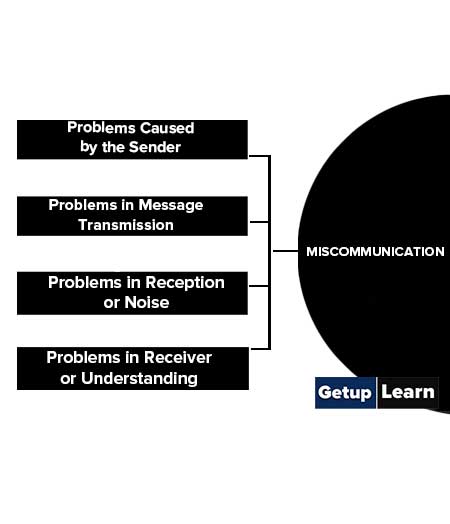
Problems Caused by the Sender
The sender is the individual who encodes the message. A number of barriers can prevent this individual from properly handling a communication task. One is the amount of information the individual has about the subject of the message. If the sender is asked to write a memo explaining the company’s new pension program, but the finance committee has not made some of the final decisions regarding how the program may be implemented, the sender will be unable to provide a full explanation.
Too much knowledge about the subject can also be a problem. The sender may over-explain the message or make it so detailed and complex that it is confusing.
Problems in Message Transmission
Communication can also break down because of problems in transmission. One major problem is the number of transmission links. When a verbal message is transmitted through three or four different people before reaching its final destination, the message will most likely be altered or changed through the stages in communication. This distortion of the message occurs often in upward and downward communication.
Problems in Reception or Noise
Sometimes there are communication problems because of problems in reception. Communication scholars use the term “noise” to refer to factors that interfere with the exchange of messages. “Physical noise” – external sounds that distract communicators fall into this category, but there are other types of external noise that don’t involve sound.
For example, an overcrowded room or a smelly cigar can disrupt concentration. The second kind of interference is caused by “physiological noise.” Hearing disorders fall into this category, as do illnesses and disabilities that make it difficult to receive messages.
The third type of interference is “psychological noise,” consisting of forces within the receiver that interfere with understanding. Egotism, defensiveness, hostility, preoccupation, fear – all these and more constitute psychological noise.
Problems in Receiver or Understanding
Communication involves both information and understanding. It takes place only when the receiver understands what the sender means to convey. If the idea receives by the receiver is not the one which was intended miscommunication has taken place. Usually, the backdrop of the receiver and sender of the message differs. In such cases, additional efforts are required by the receiver and sender to ensure understanding.
What is effective communication?
Effective communication is a combination of a set of skills that include attentive listening, nonverbal communication, the ability to deal with stress in the present situation, and the capability to identify and understand one‟s own emotions and those of the person one is communicating with.
What are the 7 characteristics of effective communication?
The characteristics of effective communication are: Clarity of Purpose, Completeness, Conciseness, Feedback, Empathy, Modify the Message According to the Audience, Multiple Channels of Communication Make Effective Use of Grapevine etc.
What are the 5 importance of communication?
Importance of effective communication are: (1) Basis of Action, (2) Facilitates Planning, (3) Helps in Decision-Making, (4) Means of Coordination, (5) Improves Relationships, (6) Improve Motivation and Morale etc.
What are some essentials of effective communication?
These are the essentials for effective communication which are given below:
1. To Know the Process of Communication
2. Your Target Audience
3. Better Informed
4. Plan Adequately
5. Remain Positive
6. Overcome Strong Feelings
7. Remain Sincere
8. Be Consistent
9. Focus on Timeliness etc.

